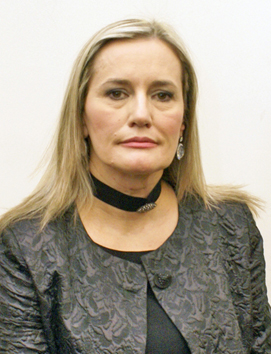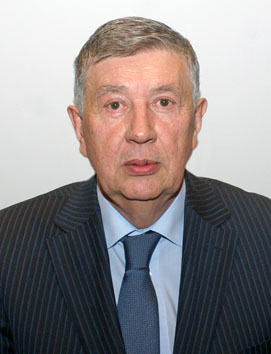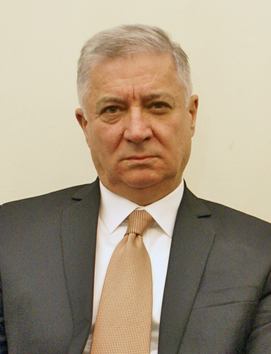Delegation of Parliamentary Assembly of Bosnia and Herzegovina to the Parliamentary Assembly of the Central European Initiative (CEI)
-

Tomić, Monika
Chair
-

Radmanović, Nebojša
Member
-

Škaljić, Fehim
Member
| CHAIR: | Tomić, Monika |
|---|---|
| MEMBERS: |
Radmanović, Nebojša
Škaljić, Fehim |
| CONTACT | |
|
|
Parliamentary Dimension of the Central European Initiative (PD CEI)
The origin of the Central European Initiative lies in the Treaty signed in Budapest on 11 November 1989 by: Austria, Italy, Hungary and the Socialist Federal Republic of Yugoslavia (SFRY), which created platform for mutual political, economic and cultural co-operation known as Quadrigonal Cooperation. In 1990, Czechoslovakia was admitted and the Initiative was renamed into Pentagonal. In 1991, with the admission of Poland it became the Hexagonal Initiative. Due to changes that happened in Europe in early 90’s of 20th Century, a new avenue was created for acceptance of new members, both former Soviet Union countries (Belarus, Moldova, Ukraine, Czechoslovakia which was replaced by Czech Republic and Slovakia) and the former Yugoslavia countries. The organization was renamed Central European Initiative (CEI) in 1992. Bosnia and Herzegovina became member of the Central European Initiative on 17 July 1992. Today, Central European Initiative has eighteen Member States, out of which nine are also EU Member States and nine that are not.
Central European Initiative operates through various structures:
- Governmental Dimension (CEI Summit - annual meetings of the Heads of Government , with concurrently held Economic Forum, annual meeting of the Ministers of Foreign Affairs, Ministers of Economic Sectors and other ministerial meetings),
- CEI Parliamentary Dimension provides parliamentary support to Central European Initiative’s goals
- CEI Business Dimension enables co-operation of representatives of national Chambers of Commerce
Central European Initiative maintains regular contacts with the European Union and co-operates with other international organizations and institutions such as: OECD (Organization for Economic Co-operation and development), Council of Europe, OSCE (Organization for Security and Co-operation in Europe), EBRD (European Bank for Reconstruction and Development), UNECE (United Nations Economic Commission for Europe) and with other regional forums like Adriatic – Ionian Initiative, Danube Co-operation Process, the Black Sea Economic Cooperation (BSEC), South-East European Co-operation Process (SEECP).
CEI represents the cohesion and solidarity in Europe and contributes to realization of common multilateral and bilateral projects, and it specially:
- strengthens the good neighbourly relations
- promotes human dimension
- promotes co-operation in the area of science and technology, economy, environment protection, as well as in the trade, tourism and the culture and it helps with specific areas of co-operation.
One of the main CEI objectives is to bring closer the countries of Central, East and the South East Europe and to help them with the preparation process European Union membership. Presidency over CEI rotates annually in accordance to the Chairmanship at the level of Foreign Affairs Ministers and the Heads of Governments. Rotation happens at the beginning of the calendar year according to Member States names in English alphabetical order. Bosnia and Herzegovina has already had a successful presidency over CEI in 1997.
Composition of delegations in the Parliamentary Dimension of CEI is determined as follows: three members proportional to the population of 5 million inhabitants, five members proportional to the population of 5-12 million inhabitants, and seven members proportional to the population of more than 12 million inhabitants. Therefore, Bosnia and Herzegovina is entitled to compose a three-member Delegation which is regularly followed by the Secretary of the Delegation. Rules of Procedure of the CEI Parliamentary Dimension provide that each member of Delegation can have one substitute in order to ensure regular participation at the Parliamentary Dimension meetings.
CEI Parliamentary Dimension operates through:
- Annual meeting of the Parliamentary Assembly of the Central European Initiative held in autumn. Entire national Delegation generally attends the annual meeting,
- Annual meeting of the CEI Parliamentary Committee held in spring. At that meeting, each Delegation sends two delegates to the meeting of the Parliamentary Committee: the
- Chairperson and one member of the parliamentary delegation,
- Standing Committee consists of the President and two Vice-Presidents of the CEI Parliamentary Dimension, Chairmen of the General Committees and the Chairmen of national Delegations. The Standing Committee ensures the continuity and the efficient functioning of the CEI Parliamentary Dimension between sessions.
Three General Committees:
- Committee on Political and Home Affairs is competent for political issues of mutual interest, the fight against organized crime and terrorism, civil protection, migrations and minorities.
- Committee on Economic Affairs is competent for agriculture, small and medium sized enterprises, transport and telecommunication, interregional and cross-border co-operation, reconstruction and development, environment and landscape protection, energy, tourism.
- General Committee on Cultural Affairs, having competence on culture and education, science and technology, youth affairs, human resources development and training, information and media.
Each national Delegation has at least a member in every General Committee.
Final documents in the format of Declarations and Recommendations are adopted at the CEI Parliamentary Dimension meetings, they are then sent to the attention of national Parliaments for their consideration.
CEI Member States are: Albania, Austria, Belarus, Bosnia and Herzegovina, Bulgaria, Montenegro, Croatia, Czech Republic, Hungary, Italy, Macedonia, Moldova, Poland, Romania, Serbia, Slovakia, Slovenia and Ukraine.
Official language of the CEI Parliamentary Dimension is English.

